| | | | | | | Presented By Cisco | | | | Axios AM Deep Dive | | By Mike Allen · May 28, 2022 | | 🇨🇭 Good afternoon, and welcome to our Deep Dive from Davos, Switzerland, where Team Axios — Dave Lawler, Felix Salmon, Ina Fried, Jonathan Swan and Axios publisher Nicholas Johnston — covered the World Economic Forum's annual meeting of heads of state, CEOs, activists and celebrities. - Smart Brevity™ count: 1,241 words ... 4½ mins. Edited by David Nather and Alison Snyder.
| | | | | | 1 big thing: Cold War Davos | 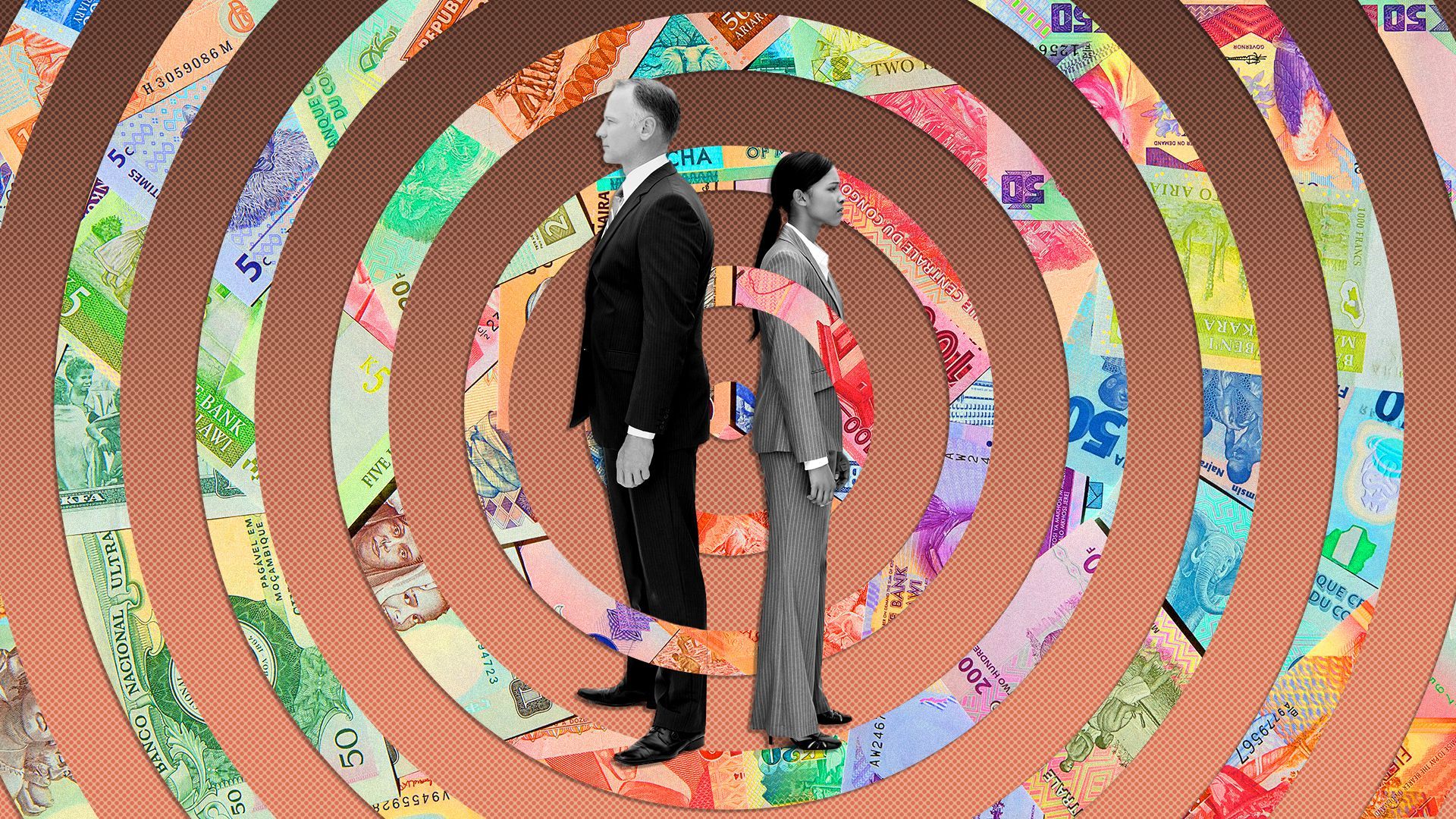 | | | Illustration: Aïda Amer/Axios | | | | The premise of the World Economic Forum is that if you bring powerful people together across borders, they can solve some of the world's thorniest problems. - If this year's forum is any indication, the biggest geopolitical players can't even gather in the same room anymore, Axios' Dave Lawler reports.
At Davoses past, Russian oligarchs — including Oleg Deripaska — threw lavish parties. Vodka flowed at the Russia House, centrally located on the Promenade. - This year, Russian companies were banned, Deripaska is sanctioned, and the Russia House was converted into the Russian War Crimes House.
- There was little Chinese participation this year, due partly to the onerous COVID restrictions on travel to and from China.
The buzz: With the autocratic powers absent, Davos felt like a trans-Atlantic lovefest. Panel topics included "European Unity" and "The Resurgence of the West." - "We've had this holiday from history for 30 years, right? And Davos has been very much a part of that," former Finnish Prime Minister Alexander Stubb tells Axios, referring to the post-Cold War decades in Europe in which walls came down and war seemed distant.
The forum's idealism about power and globalization can feel like a relic of a time when supply chains were expanding, the connective force of the internet felt boundless, and the U.S.-led liberal order stood preeminent. - "The things that were supposed to bring us together are actually driving us apart at the moment, because everything can be weaponized," Stubb says.
What to watch: While Russia is out of the Davos club, China — given its massive market and geopolitical weight — is still being cautiously courted, including by Western officials and executives. - Before U.S. climate envoy John Kerry appeared alongside his Chinese counterpart — the only time officials from the two superpowers shared a stage — Axios overheard him discussing how to handle it with his team: "Do I say I'm happy to be here with my friend?"
- Kerry did use that word in the end, before noting "the serious disagreements between our countries."
Read the full story. |     | | | | | | 2. Ukraine dominates Davos | 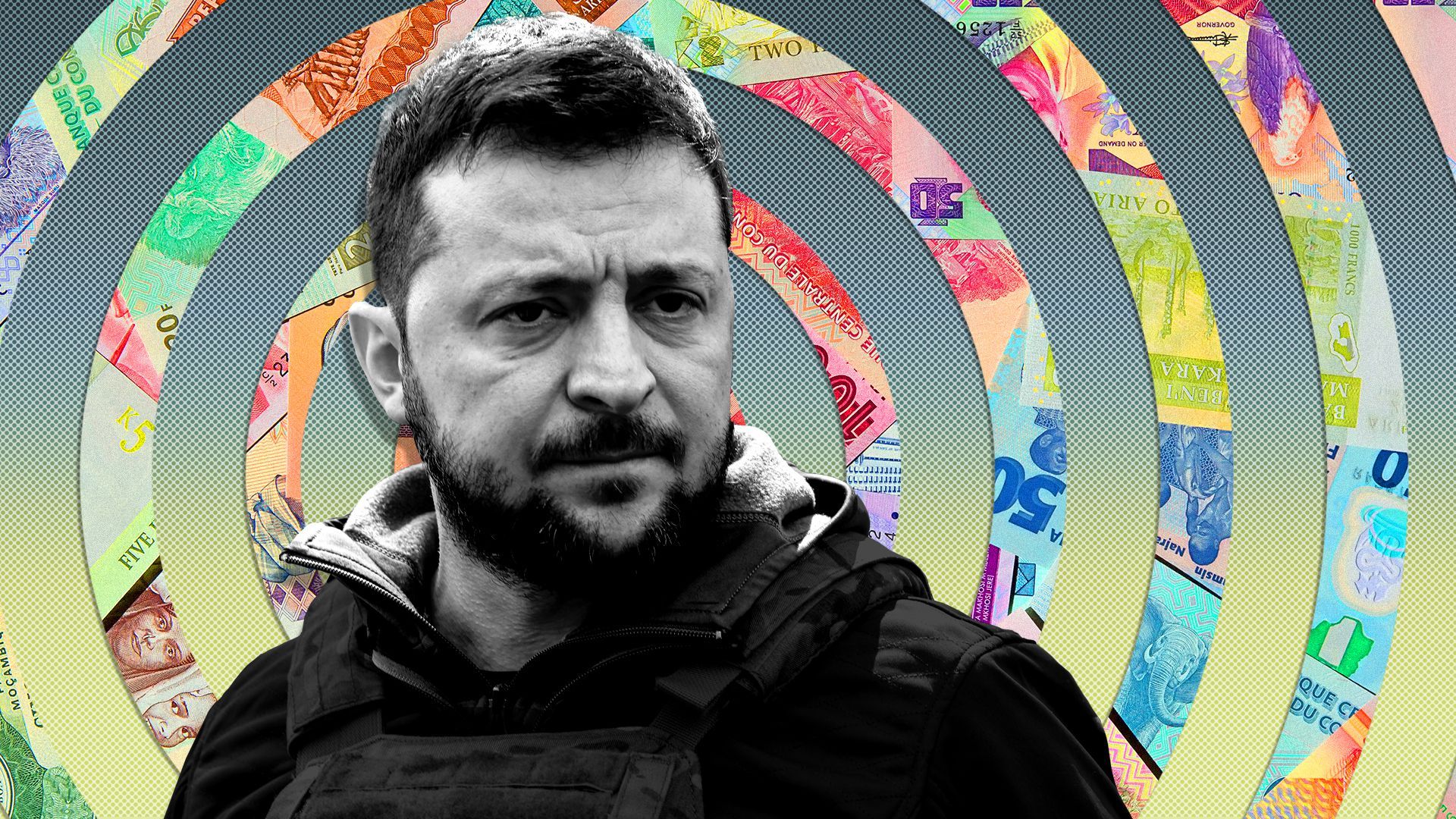 | | | Photo illustration: Sarah Grillo/Axios. Photo: Ronaldo Schemidt/AFP via Getty Images | | | | Ukraine dominated many of the panel discussions, speeches from world leaders, and even the evening entertainment in Davos, Dave reports. - No one set the tone more than Ukrainian President Volodymyr Zelensky, who didn't step foot in Davos but was easily the star of the show.
Zelensky appeared via videolink for an Axios interview with Jonathan Swan, and opened the forum with an impassioned address. Even with a slimmed-down crowd in Davos this year, we'd never seen the hall so full. - A dozens-strong Ukrainian contingent did travel to Davos to lobby for more weapons, seek investment to rebuild the country and urge the VIP audience not to look away.
Tuesday night's offerings included a concert for Ukraine, with Yo-Yo Ma performing, and a dinner for Ukraine, hosted by Ukrainian oligarch Victor Pinchuk. Cellist Yo-Yo Ma and classical pianist Emanuel Ax perform at a Ukraine solidarity concert in Davos. Photos: Ina Fried/Axios The dinner quickly turned somber as several Ukrainian attendees were introduced — including the mayor of Bucha, the Kyiv suburb synonymous with mass graves, and a doctor from Mariupol, where thousands of civilians have died and a maternity hospital was bombed. - After the mayor of Russian-occupied Melitopol rose to speak, another Ukrainian attendee unveiled a battle-damaged flag from "our boys on the front lines." Everyone rose for an impromptu rendition of the national anthem.
Share this story. |     | | | | | | 3. Davos ignores the pandemic | 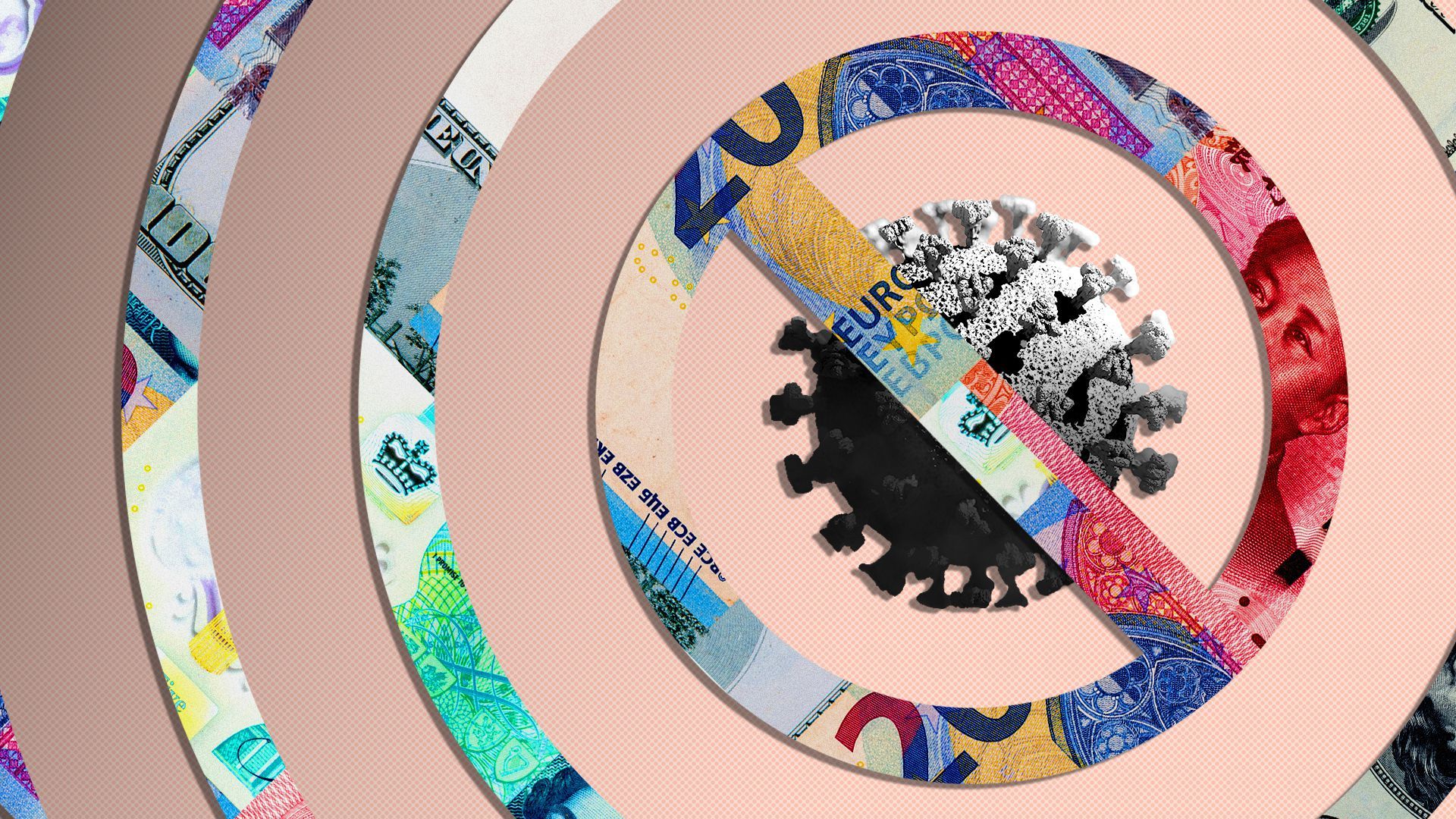 | | | Illustration: Brendan Lynch/Axios | | | | "We don't have to worry about the f---ing monkeypox, do we?" — Al Gore, overheard in the Davos conference center At the first annual meeting since the pandemic brought the global economy to its knees, COVID was largely ignored as a clear and present risk to the assembled delegates and hangers-on, Axios' Felix Salmon reports. - Delegates trusted that their mRNA boosters and the testing protocols would protect them, along with modern therapeutics, should they end up catching the virus.
The main venue for the annual meetings, the Congress Centre, is a warren-like and largely windowless conference center, divvied up into small, airless rooms. - Dozens of delegates file into such spaces for panels, press conferences, and the like. Almost none were wearing masks.
The Davos nightlife similarly picked up where it left off pre-pandemic, with loud and crowded venues, free-flowing alcohol, and people shouting to be heard over the din. - Masks were worn only by servers. Any delegates with COVID worries didn't even bother showing up.
- People who were tested at the center ended up mixing with other people in Davos who hadn't been tested — then returned to the center, where few people wore masks.
The bottom line: Some of Davos' biggest parties were canceled, but others replaced them. The Chainsmokers performed at a tiny, packed bar. |     | | | | | | A message from Cisco | | The electric grid demands more security | | | 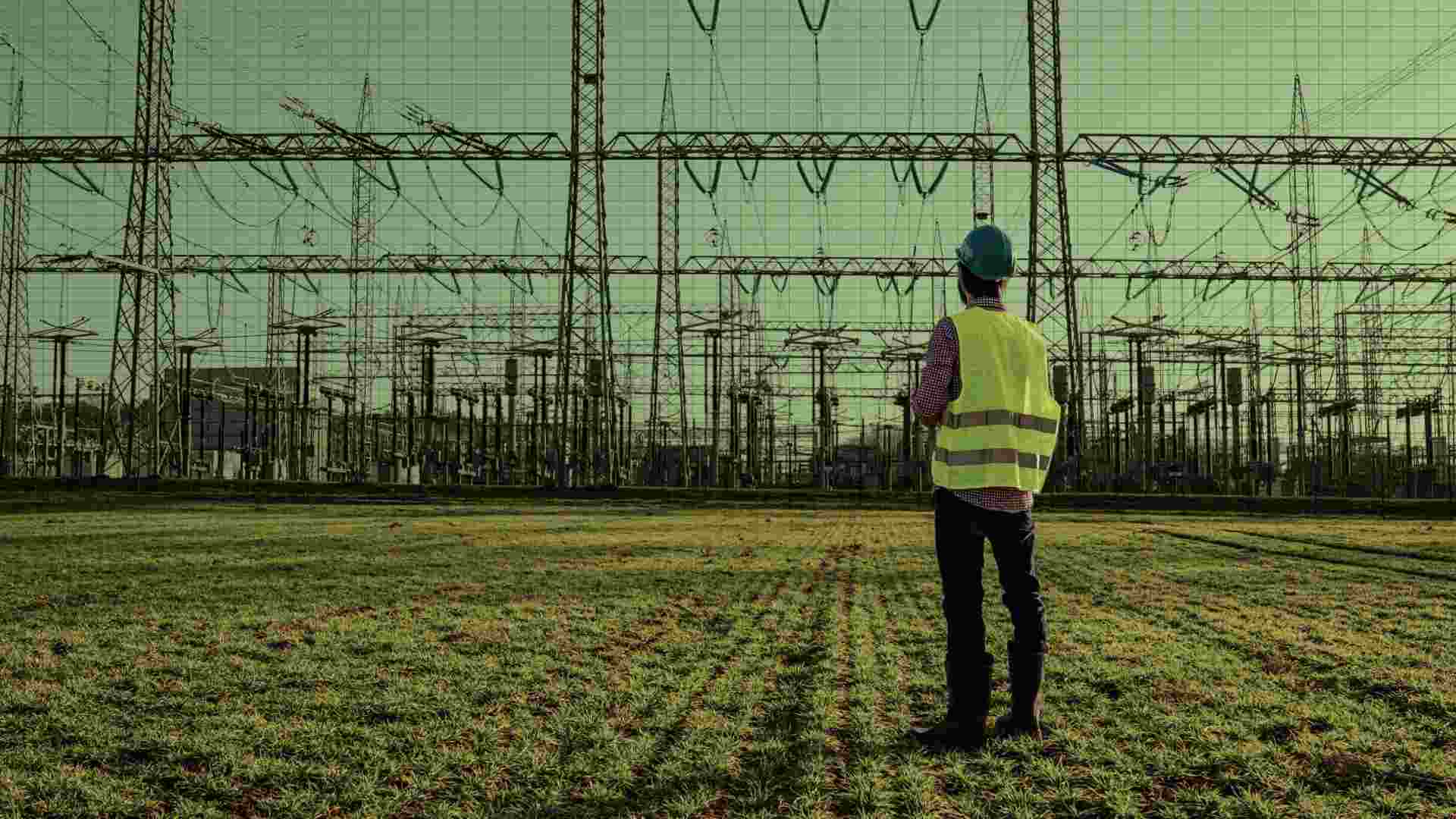 | | | | As the energy system becomes more digitized, the grid becomes more vulnerable to cyberattacks. The solution: Cisco works to keep the grid safe by harnessing insights to anticipate issues, prioritizing the most important efforts and defending by closing gaps. Learn more. | | | | | | 4. CEOs fret over frayed supply chains | 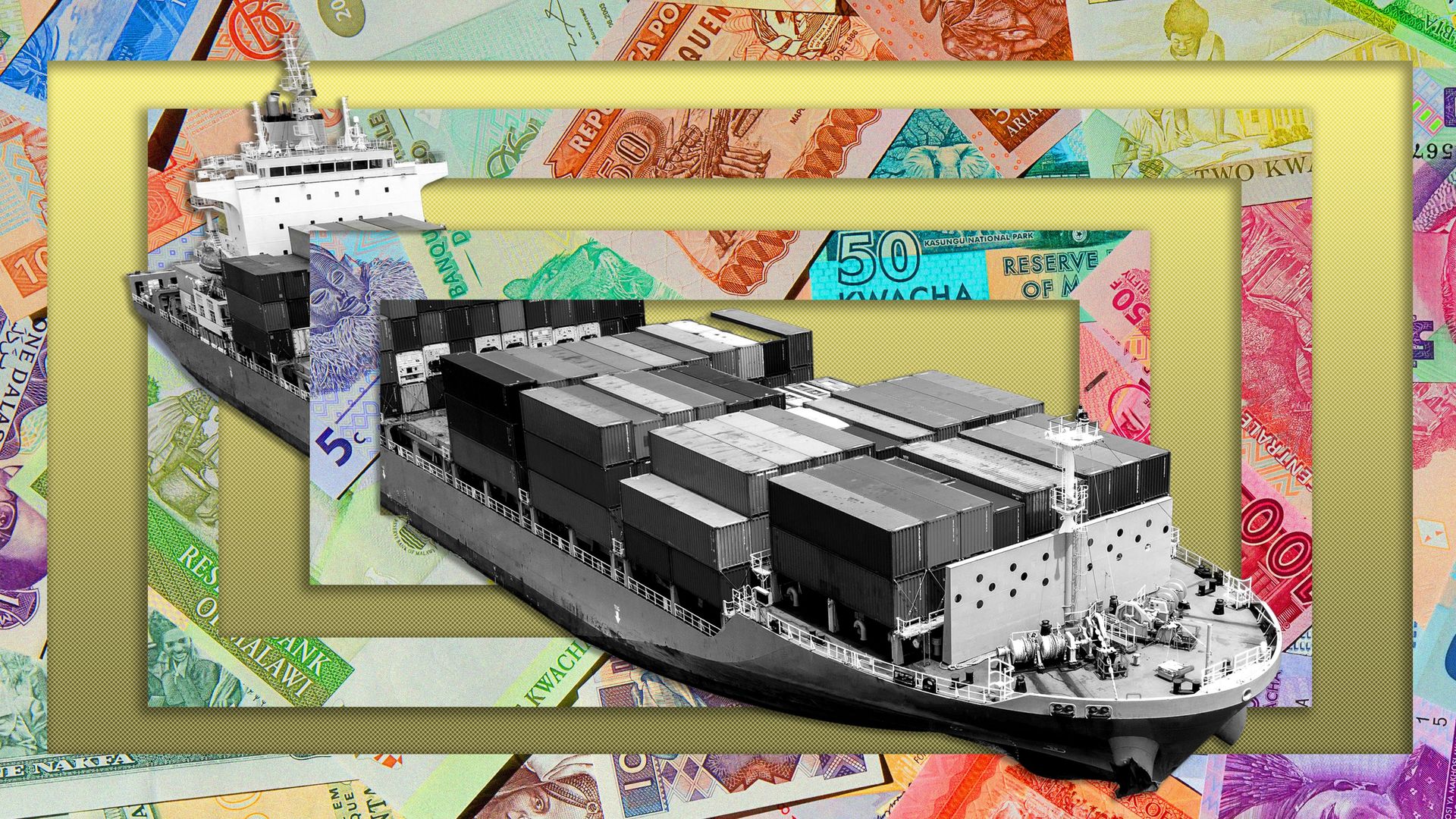 | | | Illustration: Allie Carl/Axios | | | | Frayed supply chains and U.S.-China tensions were on the minds of many tech executives this week, Axios' Ina Fried reports. - Why it matters: Nearly every tech company is dealing with the one-two whammy of a global semiconductor shortage, combined with COVID-related disruptions in China and elsewhere.
Long supply chains have always been somewhat vulnerable to disruptions. But the pandemic caused multiple failures, changing the calculus for many in tech. - China-U.S. tensions also appear likely to permanently change the equation.
The big picture: All companies are feeling the heat to greater and lesser degrees. Even Apple, which has been able to better withstand past shocks, says the constraints will dent revenue this quarter on the order of $4 billion to $8 billion. - Justin Hotard, who runs the unit that builds supercomputers at Hewlett Packard Enterprise, told us the question is whether tech will move to a "segregated, more localized supply chain."
Go deeper. |     | | | | | | 5. Diminished Davos | 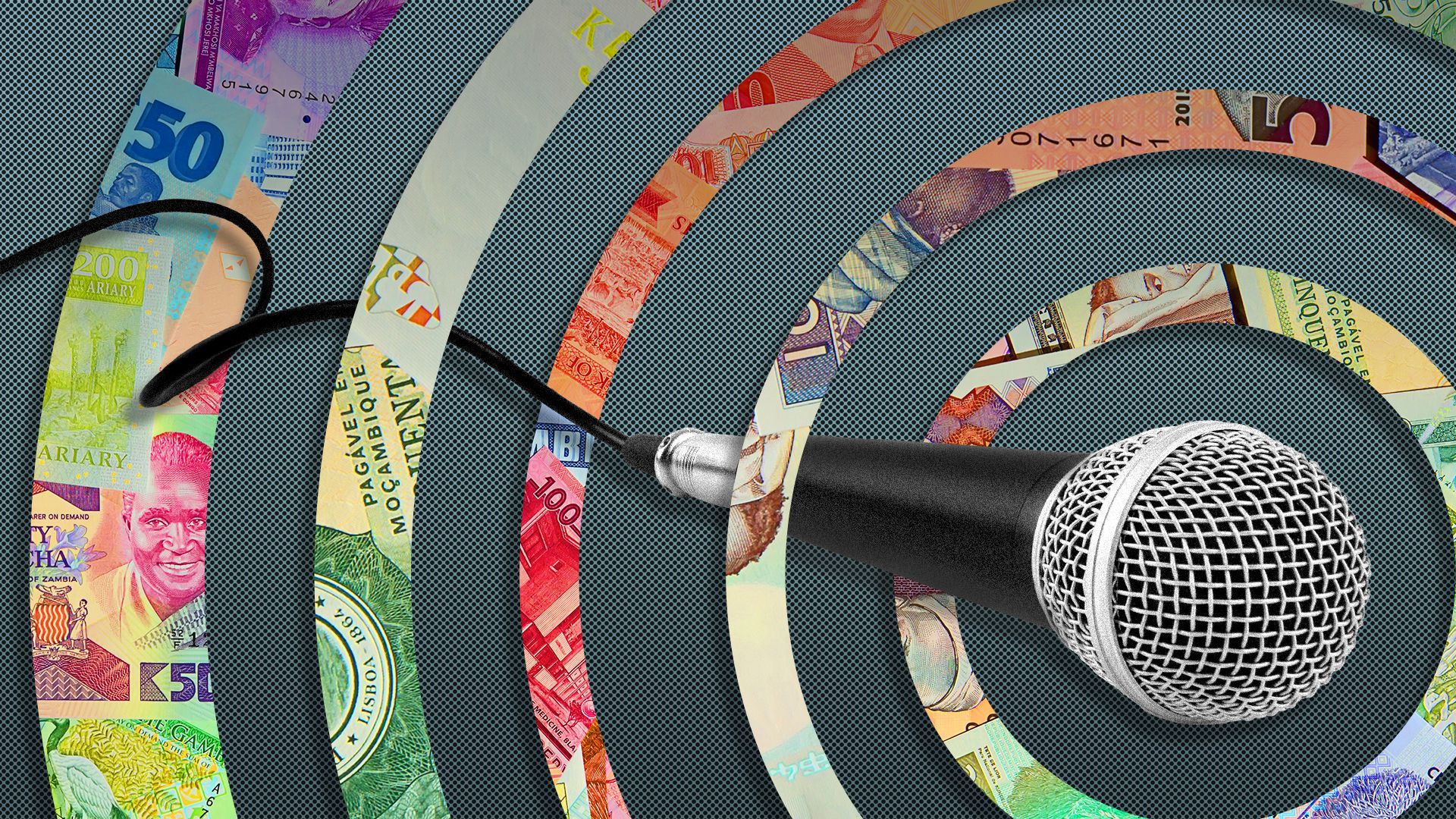 | | | Illustration: Shoshana Gordon/Axios | | | | Wherever the world's attention might be focused right now, it's not Davos, Switzerland, Felix reports. - When a major new trade pact was announced Monday — encompassing 13 countries including the U.S., Japan, India, South Korea, and Australia — it was at a summit in Tokyo, 6,000 miles from Davos.
Heads of state — including President Biden, Japanese Prime Minister Fumio Kishida, and Indian Prime Minister Narendra Modi gathered in Tokyo — to discuss supply chains, pandemics, and the war in Ukraine. - In Davos, the U.S. delegation was threadbare. The highest-profile attendee was Commerce Secretary Gina Raimondo.
The bottom line: Switzerland, proudly neutral for 500 years, lends itself well to creating and strengthening international ties of commerce, friendship, and familiarity. (The first time I came to Davos, I had a fascinating half-hour conversation with an Iranian ayatollah.) - In an era of everyone picking sides, Davos has less to offer.
Share this story. |     | | | | | | 6. 1 fun thing: Using AI to count frogs | 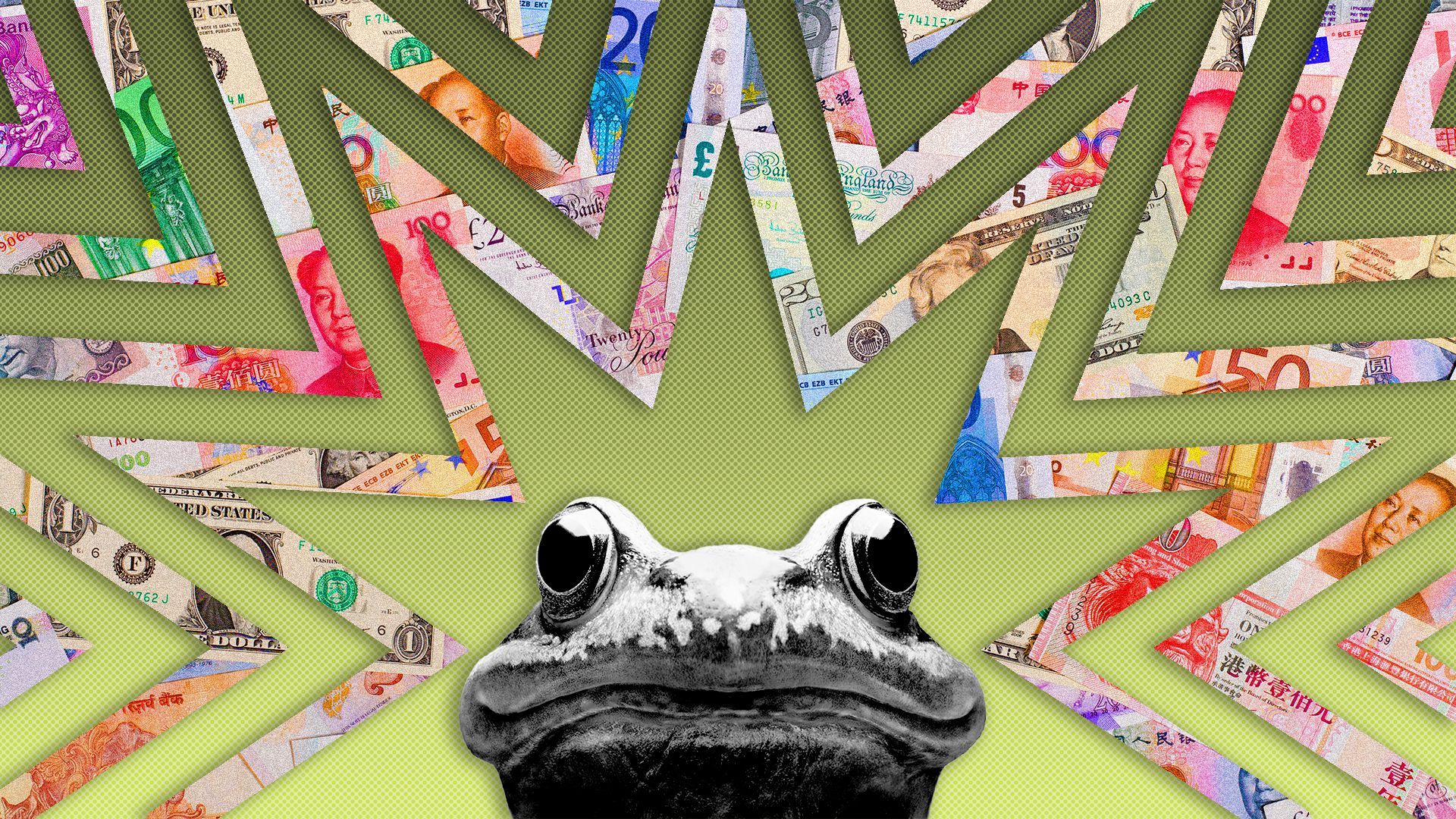 | | | Illustration: Annelise Capossela/Axios | | | | Davos has discovered biodiversity — which means it has discovered frogs, Felix reports. - Why it matters: Counting frogs is a great way to judge the health of a forest. So the accounting firm EY has created a challenge to develop an AI-based frog-counting tool.
The team with the greatest accuracy will win $10,000. - "Currently, species distribution models for frogs are poor for a variety of reasons," says EY spokesperson Konstantinos Makrygiannis. "With the challenge, we are aiming to improve the existing process."
Share this story. |     | | | | | | A message from Cisco | | Cybersecurity is key to grid modernization | | | 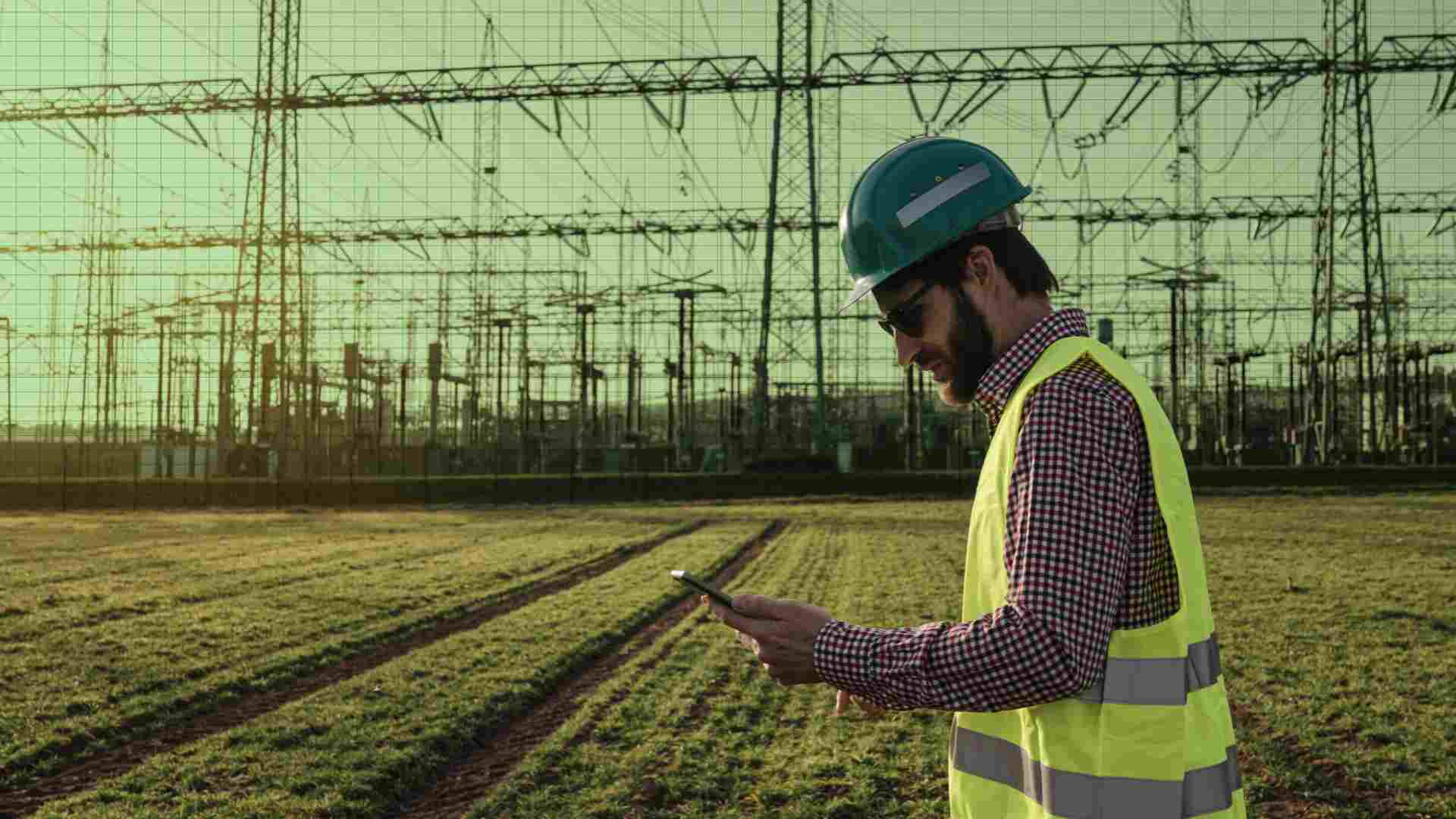 | | | | The digitization of the energy system improves energy security — but it can also pose new risks. What you need to know: Cisco helps keep the grid safe from vulnerabilities across systems, supply chain and infrastructure, ensuring operations are more reliable, resilient and efficient. Learn more. | | | | 🌐 Thank you for reading! Sign up here for Axios Markets. |  | It's called Smart Brevity®. Over 200 orgs use it — in a tool called Axios HQ — to drive productivity with clearer workplace communications. | | | | | | Axios thanks our partners for supporting our newsletters. If you're interested in advertising, learn more here.
Sponsorship has no influence on editorial content. Axios, 3100 Clarendon Blvd, Suite 1300, Arlington VA 22201 | | | You received this email because you signed up for newsletters from Axios.
Change your preferences or unsubscribe here. | | | Was this email forwarded to you?
Sign up now to get Axios in your inbox. | | | | Follow Axios on social media:    | | | | | |
Post a Comment
0Comments